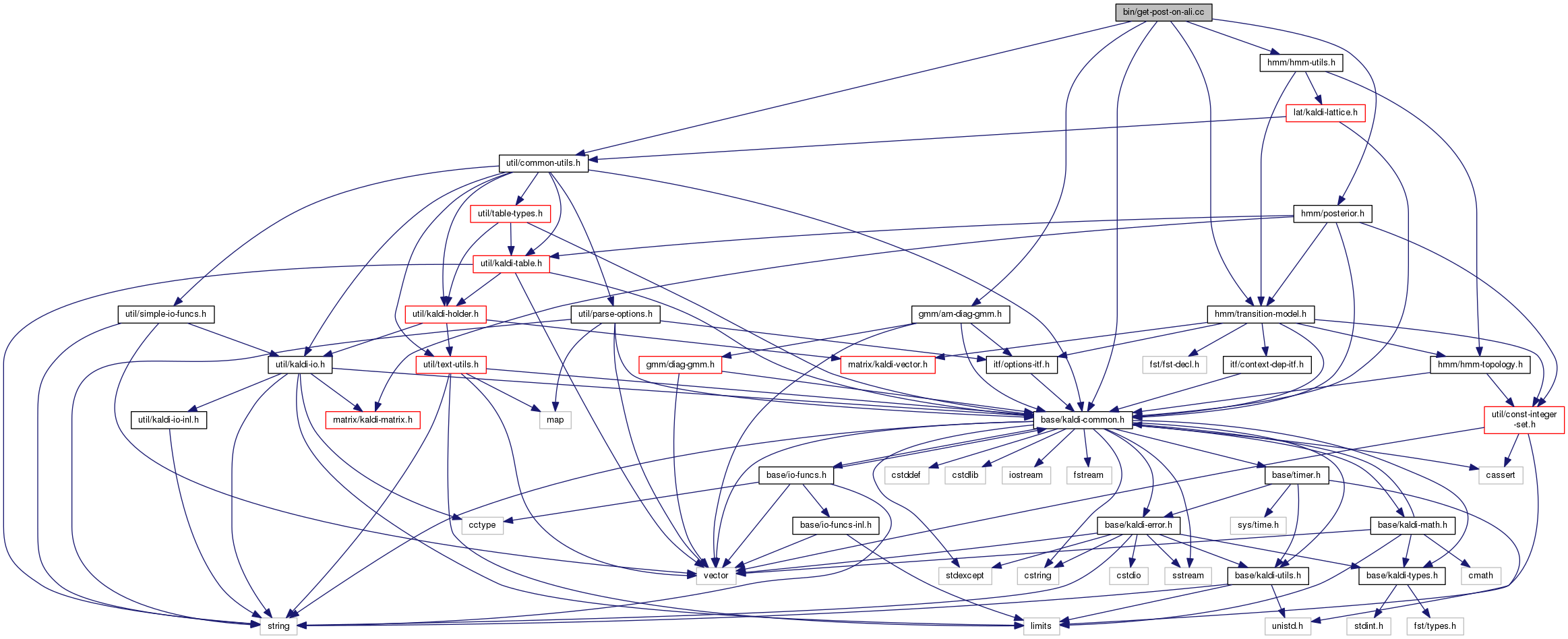#include "base/kaldi-common.h"#include "util/common-utils.h"#include "gmm/am-diag-gmm.h"#include "hmm/transition-model.h"#include "hmm/hmm-utils.h"#include "hmm/posterior.h"
Go to the source code of this file.
Functions | |
| int | main (int argc, char *argv[]) |
| int main | ( | int | argc, |
| char * | argv[] | ||
| ) |
Definition at line 30 of file get-post-on-ali.cc.
References SequentialTableReader< Holder >::Done(), ParseOptions::GetArg(), RandomAccessTableReader< Holder >::HasKey(), rnnlm::i, rnnlm::j, KALDI_ASSERT, KALDI_LOG, SequentialTableReader< Holder >::Key(), SequentialTableReader< Holder >::Next(), ParseOptions::NumArgs(), ParseOptions::PrintUsage(), ParseOptions::Read(), RandomAccessTableReader< Holder >::Value(), SequentialTableReader< Holder >::Value(), and TableWriter< Holder >::Write().